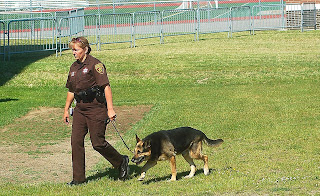Or does this message - by the Reverend Al Sharpton, an outspoken civil rights leader, and Pat Robertson, televangelist known for his conservative views - show a "thawing" of partisan relations?
Could it be that politicians on the left and the right are finally getting a clue?
Only time will tell.
Here's another one featuring current Speaker of the House, Democrat Nancy Pelosi and former Speaker, Republican Newt Gingrich.
Check it out at http://wecansolveit.org/
This is the home of the online journals and musings of my American history students at Groves High School in Beverly Hills, Michigan begun in the fall of 2006. At this site, students will share their thoughts and feelings about the topics in American history that interest them. They will respond to journals as well as be responsible for posting once a week. I hope you enjoy your visit, and please feel free to leave a comment or two.
Tuesday, June 17, 2008
Friday, June 06, 2008
The Daily Show: Indecision 5768
Here's Jon Stewart's take on the visit that Clinton, Obama and McCain all recently made to AIPAC, American Israel Public Affairs Committee.
Beware: Jewish humor. :)
Beware: Jewish humor. :)
Thursday, June 05, 2008
Blog #24 - Evaluation of Retro U.S. history
 We're just about done with the school year and you've been working with the latest American history (1929 - present) in a backwards, thematic manner. This semester, I've taken several issues or problems that we see in the news regularly - the Iraq War, the 2008 Presidential election w/ Senators Obama, Clinton and McCain, distrust of the government, the current economic recession, and the threat of nuclear terrorism and proliferation - and show you the roots of these problems by working backwards from the present.
We're just about done with the school year and you've been working with the latest American history (1929 - present) in a backwards, thematic manner. This semester, I've taken several issues or problems that we see in the news regularly - the Iraq War, the 2008 Presidential election w/ Senators Obama, Clinton and McCain, distrust of the government, the current economic recession, and the threat of nuclear terrorism and proliferation - and show you the roots of these problems by working backwards from the present. What I'd like you to do in this blog is assess your learning:
1. Do you think you learned history better by learning it backwards or in this case, starting with a modern day problem and then working towards its root causes, much like a case study? Or was this approach more confusing because we didn't learn history in the traditional manner? Or wouldn't the approach matter - history is confusing? Why?
2. What do you think are the benefits of learning backwards? What are the faults or drawbacks?
 3. Compared to what your friends in other U.S. history classes learned, do you think you learned more, less, or the same amount of stuff? Why?
3. Compared to what your friends in other U.S. history classes learned, do you think you learned more, less, or the same amount of stuff? Why?4. Which unit do you think you learned the most in? Why? Which unit do you think you learned the least in? Why?
Due by Monday afternoon - 4 p.m. - 200 words minimum.
Thanks for your comments in advance. I appreciate all the feedback; it helps me improve for next year's class.
Labels:
american history,
evaluation,
retro history
Monday, June 02, 2008
Subscribe to:
Posts (Atom)







